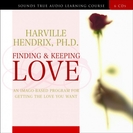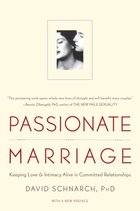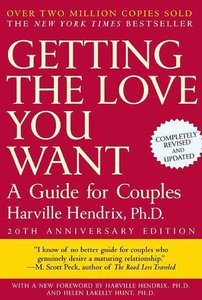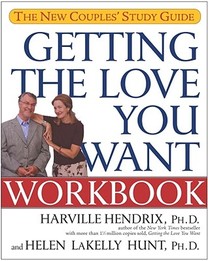- Home
- Training in Bali 20-27 April 2025
- Contact Nic Morrey
- Register for Event/Retreat Updates here
- Professional development
- e-Mental health services
- About Integral Psychology
- The 4 Faces of Love Inventory
- Tree of life relationships inventory
- Couples therapy
- Articles, Links, Audio & Powerpoints
-
Past events
- Moving Forward in your Relationship July 29th 2017
- Carl Jung Conference 2014
- From Boys to Young Men 2014 - Bali Retreat
- Bali Retreat- The Sacred Art of Relating 2012 2013 2014
- Hepburn Springs retreat - The Sacred Art of Relating couples retreat 24-26th April 2015
- Bali retreat for Couples 2-7th September 2016
- Training in Bali 'The Psychology of Relationships' 10-15th September 2017
- Training in Bali 'The Psychology of Spirituality' 2-7th September 2017
- Training in Bali 'Therapy for Therapists' 27 April-2 May and 5-12 September 2019
- Training in Bali 'Therapy for Therapists' 19-31 May 2024
- Training in Bali 'Therapy for Therapists' 28 October till 1st November 2024
- Lothlorien audio
- Training in Bali 20-25 April 27-2nd May 2025
Finding & Keeping Love

So here's what I recommend to start with. This audio is a great introduction to Imago.
(Imago- your inner image of the opposite sex + your disowned aspect of yourself)
There are two factors which fuel the power struggle.
1. Our partners make us feel anxious by stirring up forbidden parts of ourselves.
2. Our partners have or appear to have the same negative traits as our parents, adding further injury to old wounds and thereby awakening our unconscious fears of abandonment or shame.
The romance phase can last for years, but when it's over, we'll know by the increasing rate of projection of our disowned and denied parts of ourselves onto our partner to relieve our own anxiety. We look for a mate who has traits similar to our parents. So when it comes to mending and healing ourselves, we have a perfect replica of a situation in childhood, giving us adults a second opportunity to move through the pain.
(Imago- your inner image of the opposite sex + your disowned aspect of yourself)
There are two factors which fuel the power struggle.
1. Our partners make us feel anxious by stirring up forbidden parts of ourselves.
2. Our partners have or appear to have the same negative traits as our parents, adding further injury to old wounds and thereby awakening our unconscious fears of abandonment or shame.
The romance phase can last for years, but when it's over, we'll know by the increasing rate of projection of our disowned and denied parts of ourselves onto our partner to relieve our own anxiety. We look for a mate who has traits similar to our parents. So when it comes to mending and healing ourselves, we have a perfect replica of a situation in childhood, giving us adults a second opportunity to move through the pain.
"The trick is not to find the right partner, but to be the right partner."
There is not one Mr or Ms Right, there are many, and your success will overwhelmingly depend on your own state of mind and actions. It's not whether a rupture happens, but rather how you both respond to them.
There is not one Mr or Ms Right, there are many, and your success will overwhelmingly depend on your own state of mind and actions. It's not whether a rupture happens, but rather how you both respond to them.
A few quotes from Imago therapists
The role of a therapist is not to take sides as if there will be a winner and loser. These quotes are coming from a central position.
· "99% of couple trouble comes from not being 100% present." You need to really listen to your partner, so that it is safe for them to tell you what they need. In being 100% present to them, and in meeting their needs, you benefit at least as much as they do.
· "You can be right, or you can be in relationship — take your pick." Being right will not get you or your partner what you both want and need.
· "Conflict is growth trying to happen." If it’s not uncomfortable and unfamiliar, you are not growing.
· "Criticism is self-abuse." When you criticise your partner you are criticising a disowned or lost part of yourself.
· "Love is blind and marriage is the cure." Romantic love gets you together with someone with whom you can grow. The real work starts when the romance turns to a power struggle.
· "You would rather live in a predictable hell than have a taste of heaven and lose it." It feels safer to stay with what you know rather than risk getting what you want.
· "In a patriarchal society, the good relationships are the ones in which the men allow themselves to be influenced by their partners." This is not so much about which car to buy, or what to wear... but how to be intimate, loving, and caring.
· "For a healthy relationship, touch and laugh together every day." Share actions that jiggle your innards, like laughing, high-energy fun, and orgasm, to bring you closer to your partner.
· "Any behaviour that you judge to be crazy is just a child trying to tell you how they feel." Listen to the child. What do they need to feel safe, accepted, and appreciated by you?
· "Both partners in a relationship are the problem, and both are the solution." You are each 100% responsible for the system you have created through your unconscious collusion.
· "You are wounded in relationship so you need to heal in relationship (with an Imago match)." You fall in love with people who give you the greatest chances to give up your unproductive adaptations and reclaim your true self.
· "What you have now is what you are committed to." Ask yourself what you get out of remaining in conflict and disconnection.
· "Lower your defences so that your partner can become an ally rather than an enemy." Disclose your vulnerability and invoke your partner’s cuteness receptors. This works so much better than trying to punish them into compliance.
· "Most of your partner’s complaints about you have some basis in reality." They aren’t necessarily crazy or always trying to hurt you! They can help you to see how your responses are frozen in the past.
· "Most of your complaints about your partner are statements about your unmet needs." You chose your partner because they can’t naturally meet your deeper needs.
· "The only legitimate powers you have in a relationship are to ask your partner for what you need, and to change your own behaviour to meet their needs." You have no right to punish them for not loving you right (they are doing the best they can with who they are).
· "The best way for you to take care of yourself is to take care of your partner." Selfishness might get you what you want, but it won’t get you what you need.
· "You can’t walk in another’s shoes if yours are still on." Kick off your shoes, relax, listen... it’s not all about you, and you don’t have to fight back.
· "Conflict only exists when one or both partners are feeling misunderstood." If you want your partner to understand you, first do everything you can to understand them and let them know that you do.
· "To find a person who will love you for no reason, and to shower that person with reasons, that is the ultimate happiness." [Robert Brault]
· "99% of couple trouble comes from not being 100% present." You need to really listen to your partner, so that it is safe for them to tell you what they need. In being 100% present to them, and in meeting their needs, you benefit at least as much as they do.
· "You can be right, or you can be in relationship — take your pick." Being right will not get you or your partner what you both want and need.
· "Conflict is growth trying to happen." If it’s not uncomfortable and unfamiliar, you are not growing.
· "Criticism is self-abuse." When you criticise your partner you are criticising a disowned or lost part of yourself.
· "Love is blind and marriage is the cure." Romantic love gets you together with someone with whom you can grow. The real work starts when the romance turns to a power struggle.
· "You would rather live in a predictable hell than have a taste of heaven and lose it." It feels safer to stay with what you know rather than risk getting what you want.
· "In a patriarchal society, the good relationships are the ones in which the men allow themselves to be influenced by their partners." This is not so much about which car to buy, or what to wear... but how to be intimate, loving, and caring.
· "For a healthy relationship, touch and laugh together every day." Share actions that jiggle your innards, like laughing, high-energy fun, and orgasm, to bring you closer to your partner.
· "Any behaviour that you judge to be crazy is just a child trying to tell you how they feel." Listen to the child. What do they need to feel safe, accepted, and appreciated by you?
· "Both partners in a relationship are the problem, and both are the solution." You are each 100% responsible for the system you have created through your unconscious collusion.
· "You are wounded in relationship so you need to heal in relationship (with an Imago match)." You fall in love with people who give you the greatest chances to give up your unproductive adaptations and reclaim your true self.
· "What you have now is what you are committed to." Ask yourself what you get out of remaining in conflict and disconnection.
· "Lower your defences so that your partner can become an ally rather than an enemy." Disclose your vulnerability and invoke your partner’s cuteness receptors. This works so much better than trying to punish them into compliance.
· "Most of your partner’s complaints about you have some basis in reality." They aren’t necessarily crazy or always trying to hurt you! They can help you to see how your responses are frozen in the past.
· "Most of your complaints about your partner are statements about your unmet needs." You chose your partner because they can’t naturally meet your deeper needs.
· "The only legitimate powers you have in a relationship are to ask your partner for what you need, and to change your own behaviour to meet their needs." You have no right to punish them for not loving you right (they are doing the best they can with who they are).
· "The best way for you to take care of yourself is to take care of your partner." Selfishness might get you what you want, but it won’t get you what you need.
· "You can’t walk in another’s shoes if yours are still on." Kick off your shoes, relax, listen... it’s not all about you, and you don’t have to fight back.
· "Conflict only exists when one or both partners are feeling misunderstood." If you want your partner to understand you, first do everything you can to understand them and let them know that you do.
· "To find a person who will love you for no reason, and to shower that person with reasons, that is the ultimate happiness." [Robert Brault]
What usually happens in the absence of vulnerability and empathy is you try to control your partner to get what you want. Have you ever used behaviours like threatening, withholding affection, being sarcastic, cold, criticising, attacking, moping, blaming, or shaming to punish and hurt your partner into loving you right? That can succeed in intimidating your partner into complying with your wishes (although it generally doesn’t work very well), but it’s hardly a loving and compassionate way to be.
You may be trying to get your partner to understand your pain by inflicting something similar on them. This dramatically increases the amount of pain in your relationship, guaranteeing that you will get the opposite of what you want and need.
You may be trying to get your partner to understand your pain by inflicting something similar on them. This dramatically increases the amount of pain in your relationship, guaranteeing that you will get the opposite of what you want and need.
What can a couple do to have a loving and fulfilling relationship?
The alternative to a power struggle is to compassionately ask for what you need and to empathically give what your partner needs, in other words, to consciously collaborate with your unconscious purpose to overcome your childhood adaptations. Imago therapy teaches you how to do this, in safety, and with respect.
This may bring you to the third stage of an intimate relationship. The first stage (romantic love), is when you want the other person. The second (the power struggle), is when you want the other person to satisfy you. The third, "real love", is when you want what is best for the other person. |
|
For every negative interaction, you need five positive interactions to restore balance. In other words, if your relationship is 80% good, the 20% that is not good will tend to dominate your experience. Often the hardest part of addressing this balance is accepting the gifts that your partner has to offer.
There are five basic tasks in Imago relationship therapy —
There are five basic tasks in Imago relationship therapy —
- Re-imaging your partner as a wounded child.
- Re-romanticizing your relationship, through things like appreciations, caring, fun, and pleasurable surprises.
- Restructuring your frustrations through converting complaints to requests.
- Resolving your rage.
- Re-visioning your relationship as a source of safety, fulfilment, and joy.



